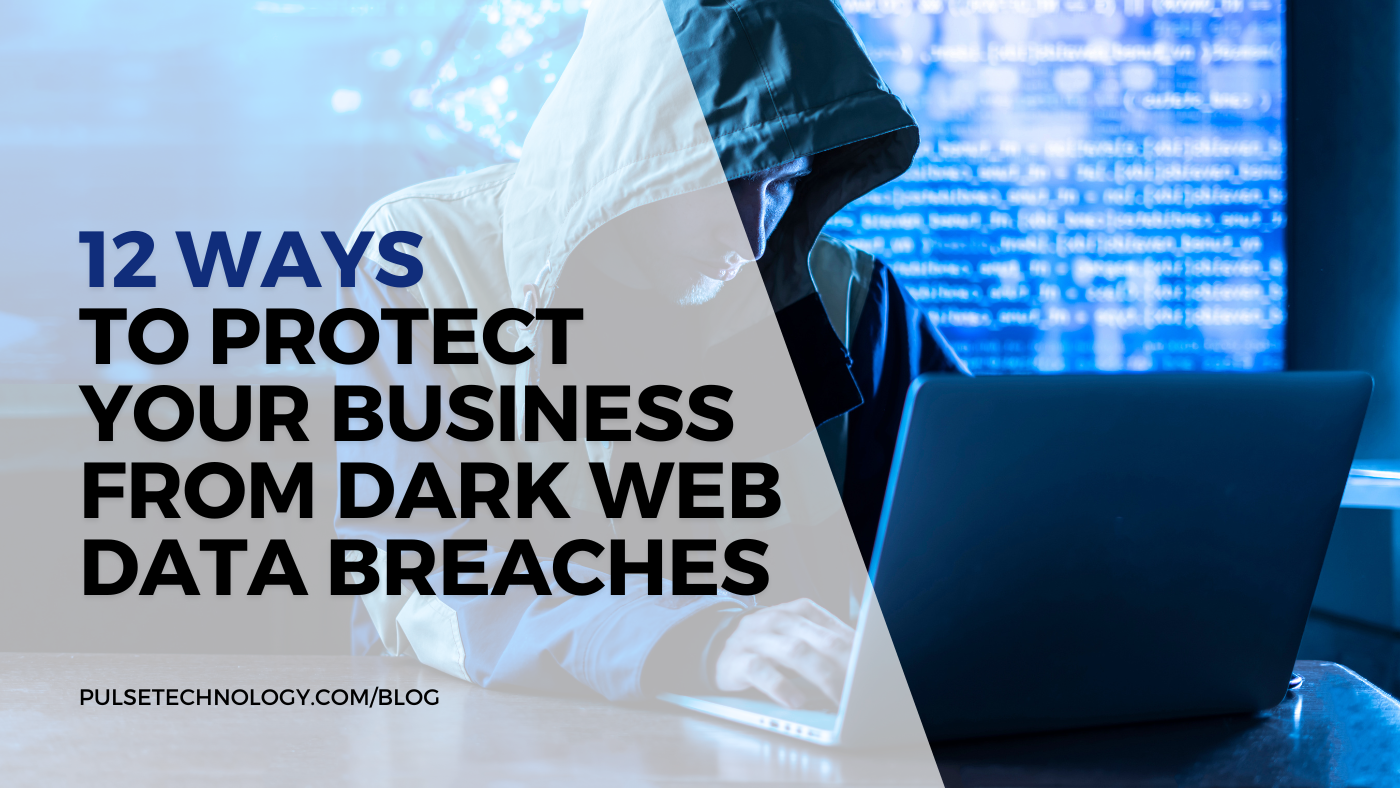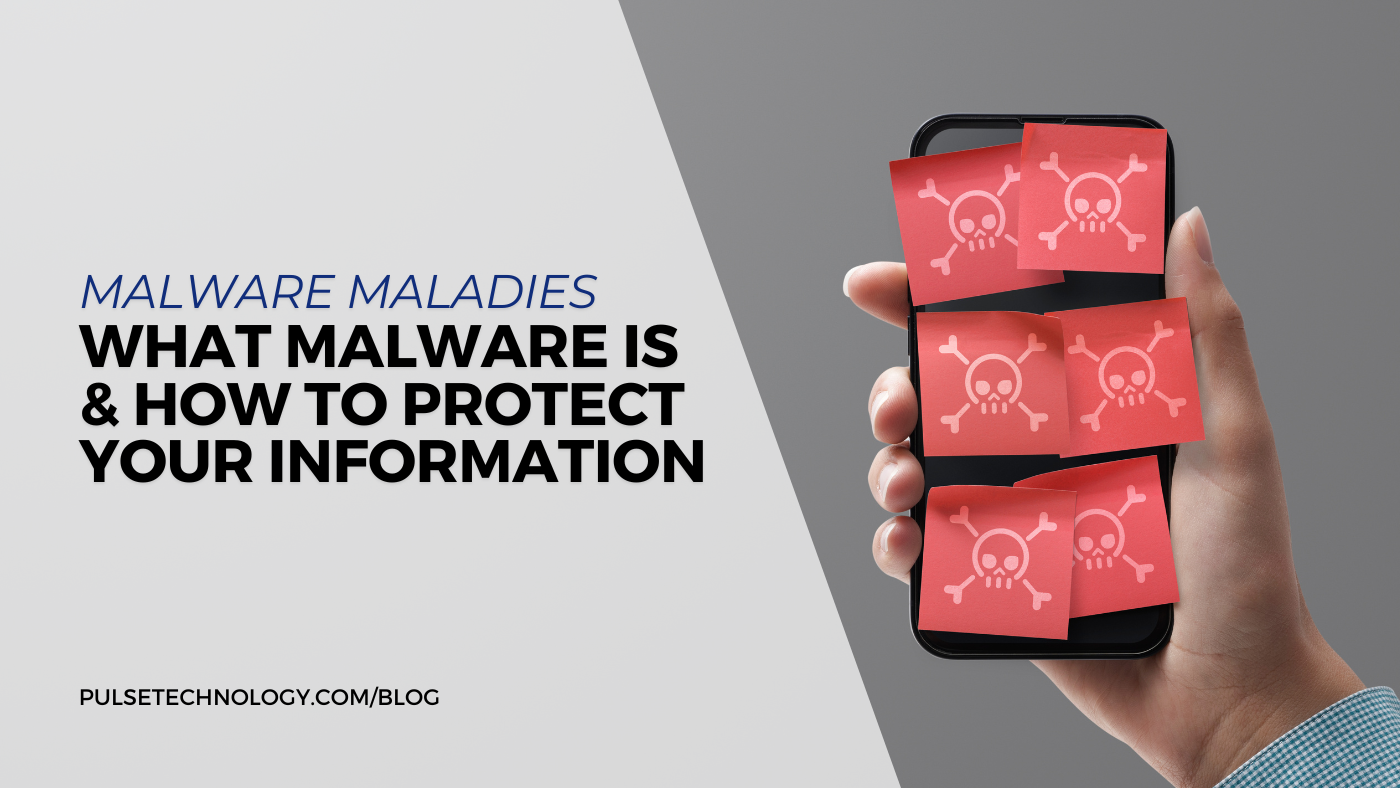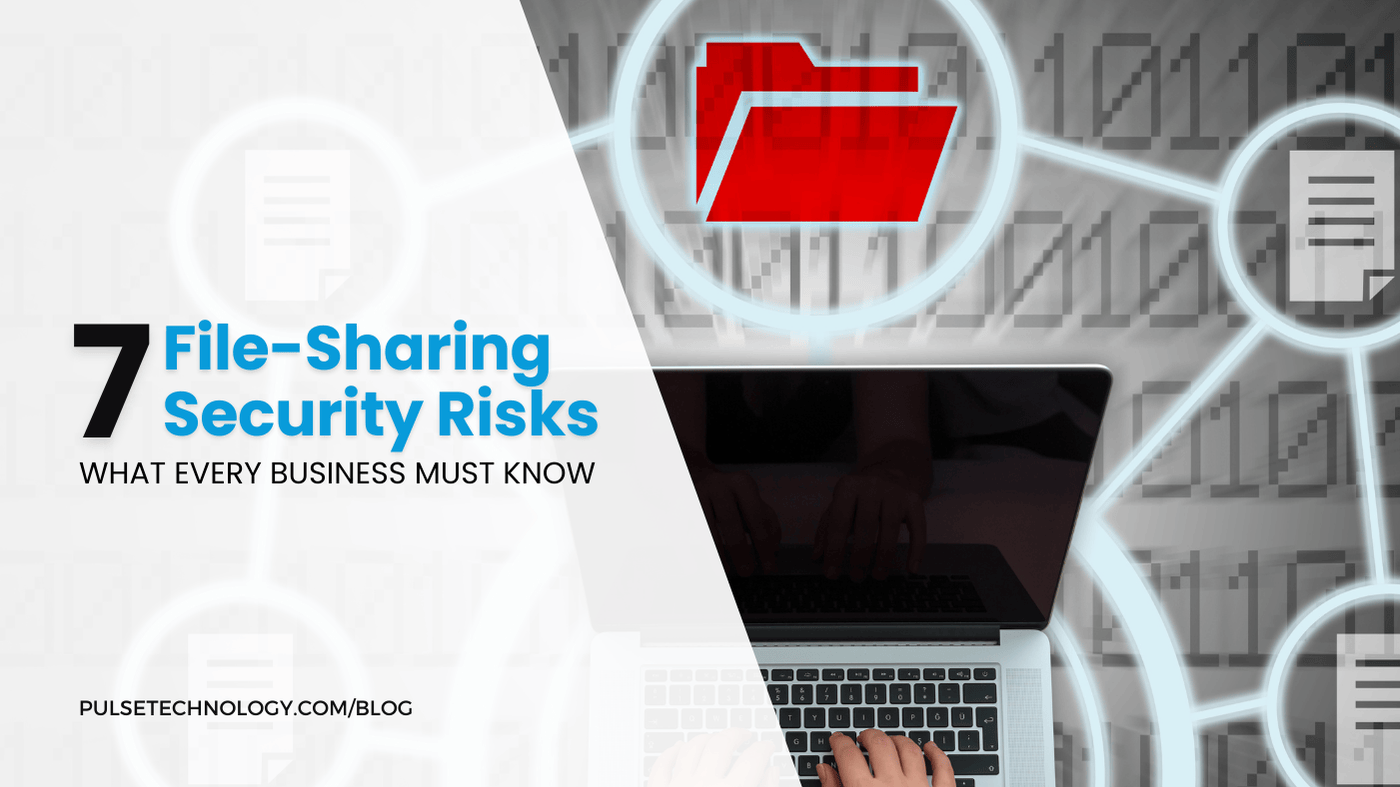What is the Dark Web and Why Should Business Owners Care?
Last time around we talked about the Internet’s “dark web,” which in short cannot be accessed on a standard web browser but instead requires a special network to keep all activity completely untraceable and anonymous. Sounds pretty sketchy? That’s because it can be and although research conducted via the dark web by journalists, law enforcement officers, activists and others can be used for the good, many cybercriminals out there use the dark web for illegal purposes.
After all, 8% of U.S. adults have never even heard of the dark web, and 23% have heard of it but don’t know what it is. In this blog, we will explore the threats that lurk in this hidden part of the internet, as this lack of awareness can leave individuals and businesses vulnerable.
What is the Dark Web?
The dark web is a hidden part of the internet that isn't indexed by standard search engines and is accessible only through specialized software like the Tor browser. It provides a level of anonymity that attracts both legitimate users and those engaged in illicit activities. While not inherently illegal, the dark web is often associated with illegal marketplaces, data breaches, and cybercrime, making it a potential risk for your business.
So, is the dark web a threat to your business? In a word, “yes.” The dark web has the potential to create havoc on any business. The dark web is a hidden part of the internet where stolen data, intellectual property, and other sensitive information are often bought and sold. It's a serious concern for businesses because about 57% of the dark web is reportedly filled with illegal content, ranging from violent materials to extremist propaganda.
This makes it a risky place where your business's data could potentially end up, creating significant challenges in safeguarding your information and maintaining your reputation.
Hackers use the dark web to sell everything from login credentials to financial data and proprietary business information. If your company’s data falls into the wrong hands, it could lead to financial losses, damage to your brand, and even legal trouble. That’s why it's crucial to understand the dark web and its dangers so you can take the right steps to protect your data and the security of your business.
How the Dark Web Works
The dark web, which attracts millions of daily visitors, operates as the hidden underbelly of the internet, where users’ identities and locations are masked. Unlike the surface web, where search engines like Google can find and index content, the dark web is made up of encrypted websites that require special software to access. This anonymity makes it a go-to spot for people who want to keep their activities off the radar, whether for privacy or more sinister reasons.
Because of its secretive nature, the dark web is often used for shady dealings, like selling stolen data, illegal goods, and services. This is a big concern for your business, as sensitive information such as customer data, employee credentials, and intellectual property can end up being traded in these underground markets.
What Illegal Activities Are Happening on the Dark Web?
A cybercriminal can purchase any number of password-cracking programs and buy or even rent what are known as exploit kits containing attack tools. Cybercrime in the dark web is thriving because the activity is untraceable and can go unnoticed for long periods of time. Also, people can be hired through third parties to conduct attacks, adding yet another layer of anonymity.
Here is a list of the illegal activities that are occurring on the dark web:
- Drug Trafficking: The dark web is a major marketplace for the sale of illegal drugs, ranging from recreational substances like marijuana and cocaine to prescription medications that are often sold without a prescription.
- Weapons Sales: Illegal firearms and other weapons can be purchased anonymously through dark web marketplaces, allowing buyers to evade traditional regulations and background checks.
- Stolen Data Sales: Cybercriminals sell stolen personal and financial information, including credit card details, social security numbers, and login credentials, often at competitive prices.
- Identity Theft: The dark web is a hub for buying and selling stolen identities, which can be used for fraudulent purposes, such as opening bank accounts or applying for loans.
- Hacking Services: Hacking tools and services are available for purchase, allowing individuals to hire hackers for various illegal activities, such as conducting data breaches or launching DDoS attacks.
- Counterfeit Goods: The dark web facilitates the sale of counterfeit products, including fake identification documents, currency, and luxury items that mimic genuine brands.
- Malware Distribution: Cybercriminals distribute malware and ransomware through the dark web, often providing instructions for use and enabling others to launch attacks on unsuspecting victims.
- Child Exploitation: The dark web hosts illegal content related to child exploitation, including the distribution of child pornography and trafficking, posing significant legal and moral concerns.
Business-Related Illegal Activities Happening on the Dark Web
Their illegal e-commerce sites mimic legitimate online stores with ratings and shopping carts, making it hard for businesses to spot scams. Even seemingly reliable sites can vanish suddenly if criminals decide to cash in on the escrow money they hold for customers.
The fact of the matter is that regardless of size or sector, if a business is connected to the Internet, it is vulnerable to an attack. Common business breaches that can take place via the dark web include:
- Customer data: Personal information that can be used for identity theft or sold to other criminals.
- Health records: Sensitive medical information that can fetch high prices due to its value in fraudulent activities.
- Employee information: Data that can be used for spear-phishing attacks or other forms of identity fraud.
- Gift cards: Often sold at a fraction of their value, making them attractive to buyers and profitable for scammers.
- Insider trading information: Confidential business information that can be exploited for financial gain.
- Proprietary product information: Trade secrets or product plans that competitors or criminals may find valuable.
- Intellectual property: Innovations, patents, and other protected materials that can be stolen and sold.
- Refunds: Fake refund scams where cybercriminals trick businesses into paying out false claims.
- Support services, like tutorials: Pirated or fake support services offered for products or software.
- Financial data: Including bank account details, credit card numbers, and financial statements.
- Credentials: Usernames and passwords that can be used to access sensitive systems or sold in bulk.
How Are Law Enforcement Agencies Combating These Illegal Activities?
Law enforcement faces tough challenges on the dark web due to its anonymity and the advanced tactics used by cybercriminals. However, they’re using sophisticated strategies and international collaboration to disrupt criminal networks and bring offenders to justice.
Here are 7 ways law enforcement agencies combat illegal activities on the dark web:
- Undercover Operations: Law enforcement conducts undercover operations to infiltrate dark web marketplaces and forums. Agents pose as buyers or sellers to gather intelligence and build cases against criminals engaged in illegal transactions.
- Digital Forensics: Investigators use digital forensics to analyze seized devices and data, tracing back transactions and identifying suspects. This involves recovering deleted files and examining internet activity logs to connect individuals to criminal actions.
- Collaboration with Tech Companies: Law enforcement collaborates with technology companies and the best cybersecurity providers to gain insights into dark web activities. These partnerships can provide valuable information about threats and help develop tools to monitor suspicious behavior.
- International Cooperation: Since the dark web operates globally, law enforcement agencies often work with international partners to tackle cross-border crimes. This includes sharing intelligence, resources, and best practices to dismantle global criminal networks.
- Monitoring and Scanning Tools: Agencies utilize monitoring tools that scan the dark web for specific keywords, phrases, or data breaches related to their investigations. These tools help identify compromised data and track illegal activities in real time.
- Public Awareness Campaigns: Law enforcement also engages in public awareness campaigns to educate the public about the risks associated with the dark web. By informing individuals and businesses about potential cybersecurity threats, they aim to reduce vulnerability and enhance overall cybersecurity.
- Legal Frameworks: Agencies work to strengthen legal frameworks to address cybercrime effectively. This involves updating laws to keep pace with technological advancements and ensuring that law enforcement has the necessary tools to investigate and prosecute offenders.
7 Common Myths and Misconceptions About the Dark Web
The dark web is often shrouded in mystery and misinformation. Many people equate it with illegal activities, envisioning a shadowy underworld where only hackers and criminals roam. However, the reality is much more nuanced. Misconceptions about the dark web can lead to unnecessary fear or a false sense of security. Understanding the truth behind these myths is crucial to future-proof your business against the increasing cyber threats from the dark web.
- The Dark Web is Entirely Illegal: While illegal activities occur, the dark web also hosts legitimate sites, such as private communication channels and resources for those evading censorship.
- The Dark Web and Deep Web Are the Same: The dark web is a small part of the deep web, which includes any content not indexed by search engines, like private databases and academic journals.
- Only Hackers Can Access the Dark Web: Anyone with basic knowledge and tools like the Tor browser can access the dark web, not just hackers.
- The Dark Web is Immune to Law Enforcement: Law enforcement can and does infiltrate the dark web, successfully shutting down illegal operations despite the anonymity it offers.
- Everything on the Dark Web is Dangerous: Not all dark web content is harmful. Some parts are used for legitimate purposes, such as secure communication for journalists, whistleblower platforms, and resources for people in countries with heavy censorship. However, caution is always advised.
- The Dark Web is Huge: Despite its mysterious reputation, the dark web is relatively small, making up only a tiny fraction of the entire internet.
- You Can’t Be Tracked on the Dark Web: While tools like Tor provide anonymity, they are not foolproof, and law enforcement can still track careless users.
How to Keep Your Company Data off the Dark Web
The ramifications of a business attacked via the dark web can be devastating. It can devalue your business by undermining brand trust. It can cause reputational damage. It can cause you to lose ground to a competitor. It can disrupt your business operation. It can defraud your organization via IP theft. The money and time to repair the damage done could prove costly.
It’s not possible to protect confidential information 100% of the time, but with regular risk assessments and real-time monitoring, your business will stand a better chance against cyber criminals.
Dark web scans and monitoring services can alert a business through the use of real-time threat intelligence and immediately alert you to suspicious activity. Monitoring also protects against a further breach with early detection of compromised information.
To keep your company data off the dark web, start by implementing strong cybersecurity measures such as multi-factor and two-factor authentication, encryption, and regular software updates. Educate employees about phishing attacks and enforce strict access controls to limit who can view sensitive information. Regularly do business data backup and ensure it's stored securely.
Conduct frequent dark web scans to detect any signs of compromised data; if any is found, act swiftly to contain and remediate the dark web breach.
Stay Ahead of the Shadows & Protect Your Business Now!
Don’t let the unseen threats of the dark web jeopardize your business. Act now to protect your business from the shadows that lurk online. Our expert team is ready to assess and fortify your current IT infrastructure with cutting-edge security solutions.
Pulse Technology services offer strong protection against dark web threats by continuously scanning for and identifying your business’s sensitive data that may have been compromised and circulated in hidden online marketplaces. Contact us now so we can help you detect these threats early, allowing us to take swift action to prevent potential breaches, safeguard your assets, and maintain the integrity of your business.




